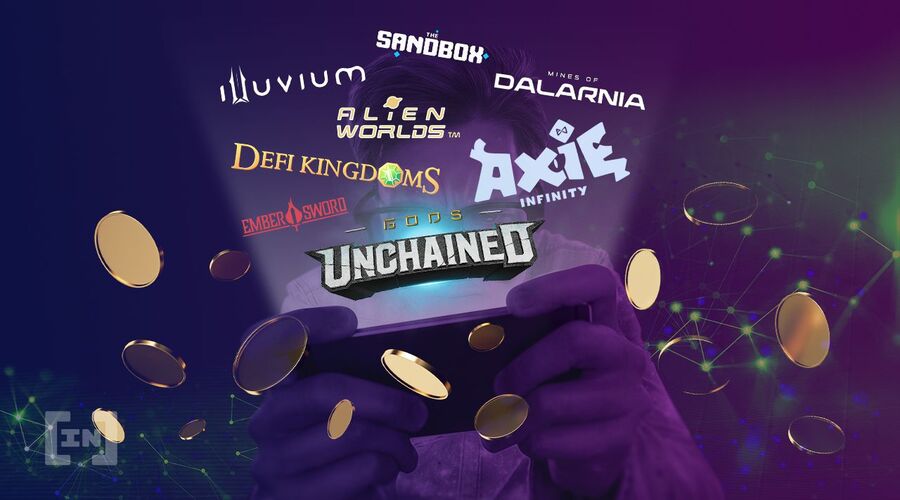Introduction
NFTs have gained significant attention in recent years for their potential to revolutionize the way we think about ownership and value. One area where NFTs are expected to have a significant impact is in the realm of intellectual property law. Here are some ways that NFTs are poised to transform the future of intellectual property:
Copyright Ownership
One of the most promising use cases of NFTs in intellectual property law is the ability to represent ownership of digital content such as art, music, and video. This could enable artists and creators to better protect their copyright ownership and monetize their work through the sale of NFTs representing ownership of their creations.
Royalty Tracking
NFTs can also be used to track royalties and revenue generated from the use of copyrighted content. By representing ownership of a specific piece of content, NFTs can enable more accurate and transparent royalty tracking and distribution, providing greater visibility into the use of copyrighted content.
Digital Identity
NFTs can also be used to establish a digital identity for creators and artists, enabling them to verify ownership and authenticity of their work. This can help to prevent plagiarism and ensure that creators are properly credited and compensated for their contributions.
Contract Enforcement
Finally, NFTs can be used to enforce contractual agreements related to intellectual property. By representing ownership of a specific piece of content, NFTs can provide a tamper-proof record of the terms of a contract and enable more secure and transparent enforcement of intellectual property agreements.
Legal Considerations

While NFTs offer exciting opportunities for the future of intellectual property, there are also legal considerations to be aware of. Here are some key legal considerations to keep in mind:
Regulatory Landscape
The regulatory landscape surrounding NFTs and intellectual property is still evolving. It is important to stay up to date on relevant laws and regulations to ensure compliance and mitigate legal risks.
Contractual Agreements
NFTs can be used to enforce contractual agreements related to intellectual property, but it is important to ensure that these agreements are legally binding and enforceable. This may require the involvement of legal professionals.
Copyright Infringement
NFTs do not provide a foolproof solution for preventing copyright infringement. It is important to take proactive steps to protect intellectual property rights, such as registering copyrights and trademarks, and taking legal action against infringers when necessary.
Tax Implications
The sale of NFTs may have tax implications, including capital gains taxes. It is important to consult with tax professionals to ensure compliance with relevant tax laws and regulations.
Future Implications
The potential for NFTs to transform the future of intellectual property is vast. Here are some potential implications of NFTs in the realm of intellectual property:
Democratization of Ownership
NFTs have the potential to democratize ownership by enabling fractional ownership of intellectual property. This can provide greater opportunities for individuals to invest in and benefit from the value of creative works.
New Revenue Streams
NFTs can provide new revenue streams for artists, creators, and intellectual property owners by enabling the sale of unique digital assets and the tracking of royalties and revenue generated from the use of copyrighted content.
Increased Transparency and Accountability
NFTs can enable more transparent and accountable systems for tracking ownership and usage of intellectual property, reducing the potential for copyright infringement and ensuring that creators are properly credited and compensated for their contributions.
Disruption of Traditional Business Models
NFTs have the potential to disrupt traditional business models in the realm of intellectual property, enabling more direct-to-consumer sales models and empowering creators to control the distribution and monetization of their work.
Challenges and Limitations
While the potential for NFTs in the realm of intellectual property is vast, there are also challenges and limitations to consider. Here are some key challenges and limitations:
Accessibility and Affordability
The current high cost of NFTs can create barriers to entry for smaller artists and creators. Additionally, the technology required to create and purchase NFTs can be complex and difficult to navigate, further limiting accessibility and affordability.
Environmental Impact
The energy consumption associated with NFTs has raised concerns about their environmental impact. The high levels of energy required for blockchain processing and transaction verification have led to criticism that NFTs are contributing to climate change.
Legal Uncertainty
The legal landscape surrounding NFTs and intellectual property is still evolving, creating uncertainty and potential risks for creators and intellectual property owners.
Technical Challenges
NFTs are a relatively new technology, and there are still technical challenges to be addressed, such as improving the scalability and interoperability of NFTs across different platforms.
NFTs and Gaming Industry
Another area where NFTs are expected to have a significant impact is in the gaming industry. Here are some ways that NFTs are poised to transform the future of gaming:
Ownership and Authenticity
One of the most promising use cases of NFTs in the gaming industry is the ability to represent ownership and authenticity of in-game items such as skins, weapons, and avatars. NFTs can enable players to have true ownership of their digital assets and can provide a tamper-proof record of authenticity.
Player-to-Player Transactions
NFTs can also enable more secure and transparent player-to-player transactions. By representing ownership of a specific in-game item, NFTs can facilitate safe and secure transactions between players, without the need for a third-party intermediary.
Incentivized Gameplay
NFTs can be used to incentivize gameplay by providing rewards for achievements and milestones in games. By representing ownership of a specific reward, NFTs can create new revenue streams for players and encourage more engagement and participation in games.
Cross-Platform Integration
Finally, NFTs can enable more seamless integration between games and platforms. By representing ownership of a specific item or achievement, NFTs can enable players to use their digital assets across different games and platforms.
NFTs and the Music Industry
NFTs are also expected to have a significant impact on the music industry. Here are some ways that NFTs are poised to transform the future of music:
Fan Engagement
One of the most promising use cases of NFTs in the music industry is the ability to engage with fans in new and innovative ways. NFTs can be used to offer exclusive experiences such as backstage passes, meet-and-greets, and unique merchandise items to fans.
Royalty Tracking and Distribution
NFTs can also be used to track and distribute royalties for music content. By representing ownership of a specific piece of music or album, NFTs can enable more accurate and transparent royalty tracking and distribution.
Collectible Assets
NFTs can also be used to create unique and collectible assets such as album covers, concert posters, and rare recordings. By representing ownership of these assets, NFTs can create new revenue streams for artists and music companies.
Funding for Projects
Finally, NFTs can be used to fund music projects such as album releases, music videos, and tours. By offering NFTs representing ownership of a specific project, artists and music companies can raise funds directly from fans and investors, without the need for traditional financing models.
NFTs and Real Estate
NFTs also have the potential to transform the real estate industry. Here are some ways that NFTs are poised to revolutionize the future of real estate:
Fractional Ownership
NFTs can enable fractional ownership of real estate assets, allowing multiple investors to own a share of a property. This can provide greater opportunities for individuals to invest in real estate, without the need for significant capital investments.
Tokenization of Assets
NFTs can be used to represent ownership of real estate assets such as properties, buildings, and land. By tokenizing these assets, NFTs can enable more transparent and secure transactions, and can facilitate the exchange of ownership without the need for intermediaries such as real estate agents and brokers.
Streamlining Processes
NFTs can streamline processes such as property sales, leasing, and management. By representing ownership and other relevant information in a tamper-proof and secure format, NFTs can reduce the need for paperwork and intermediaries, and can create more efficient and streamlined processes for real estate transactions.
Increased Liquidity
Finally, NFTs can increase liquidity in the real estate market. By enabling fractional ownership and tokenization of real estate assets, NFTs can make it easier to buy, sell, and exchange ownership of properties, buildings, and land.
Conclusion
NFTs have the potential to transform the future of intellectual property, enabling more secure and transparent ownership and monetization of digital content, more accurate tracking and distribution of royalties, and better verification of ownership and authenticity. As the technology continues to evolve and new use cases emerge, we can expect to see more innovative applications of NFTs in the realm of intellectual property law.



